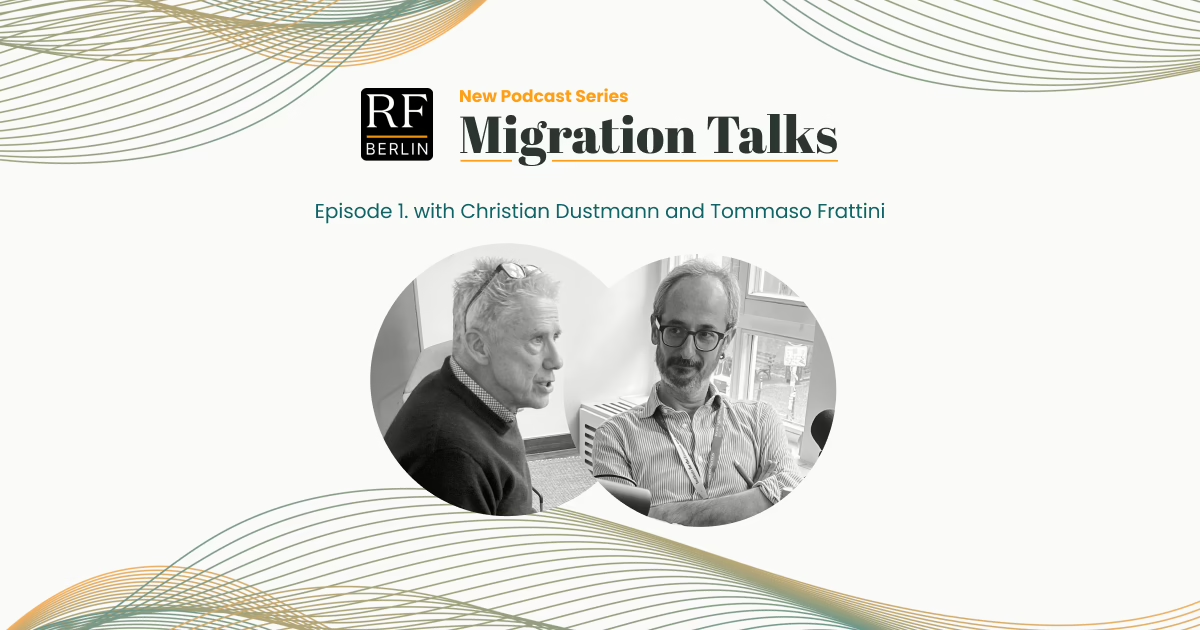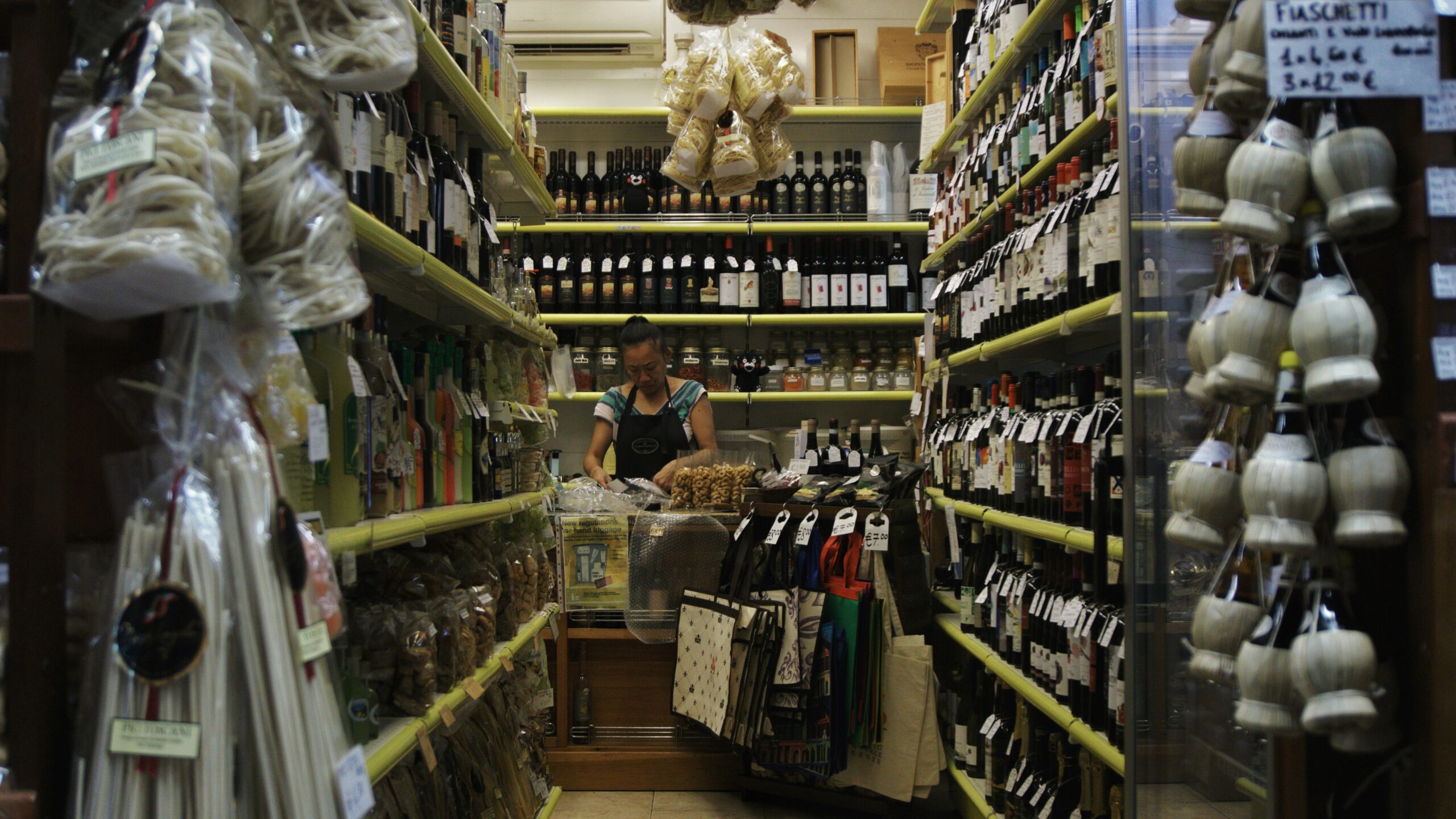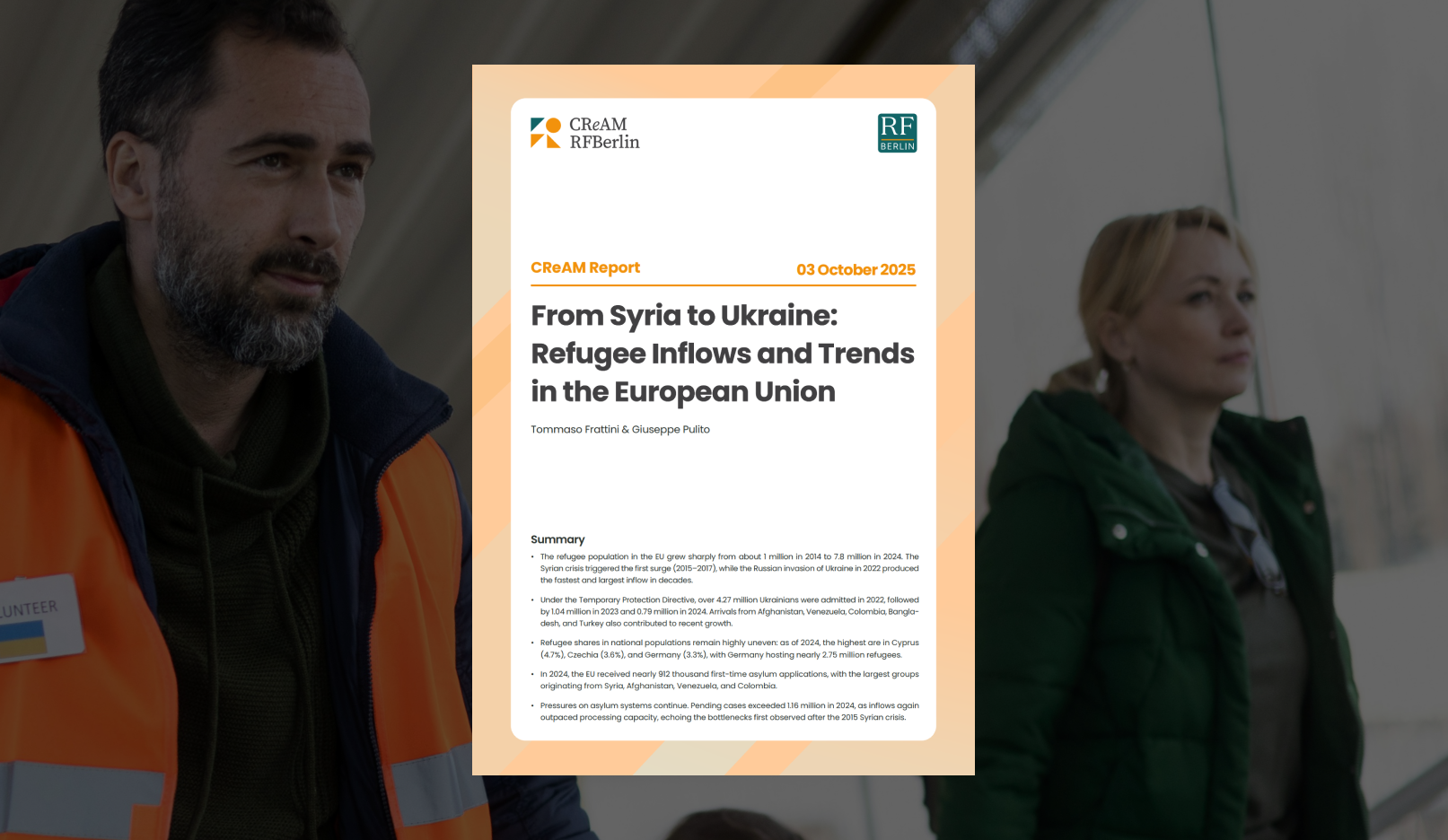In this episode, Christian Dustmann (UCL, RFBerlin) and Tommaso Frattini (University of Milan, RFBerlin) explore the politics of EU border control. As headlines increasingly focus on “securing borders,” they ask: Are these efforts really addressing the underlying challenges, or are they shaped more by public perception and political press.
Also available on these podcast platforms:
“Violating borders is always felt as a threat,” explains Dustmann. “So the focus is on this debate. And I think to some extent politicians may actually play that. It is always a very thin line politics has to walk. We are seen to be active, we are seen to do something — on the other hand, we quietly allow for economic migration, which is well, welfare-enhancing for our economies.”
At the same time, enforcement alone is no silver bullet. Frattini emphasizes that intensifying border controls does not necessarily reduce overall irregular migration — only redistributes it:
“If you exert more effort in patrolling a certain part of the border, that actually does decrease the number of illegal border crossings on that specific part of the border. […] But once you stop people from coming in from one way, they will take another route, another migratory route, and will try and enter from somewhere else.”
Professor Dustmann and Professor Frattini emphasize that while people understandably want to feel secure, policy must also reflect economic realities, demographic pressures, and long-term integration goals. Their insights challenge us to rethink the current approach to EU migration policy.
Resources mentioned in the episode:
Global Migration Information Dashboard
Study: “Border Policies and Unauthorized Flows” by Francesca Fasani & Tommaso Frattini




